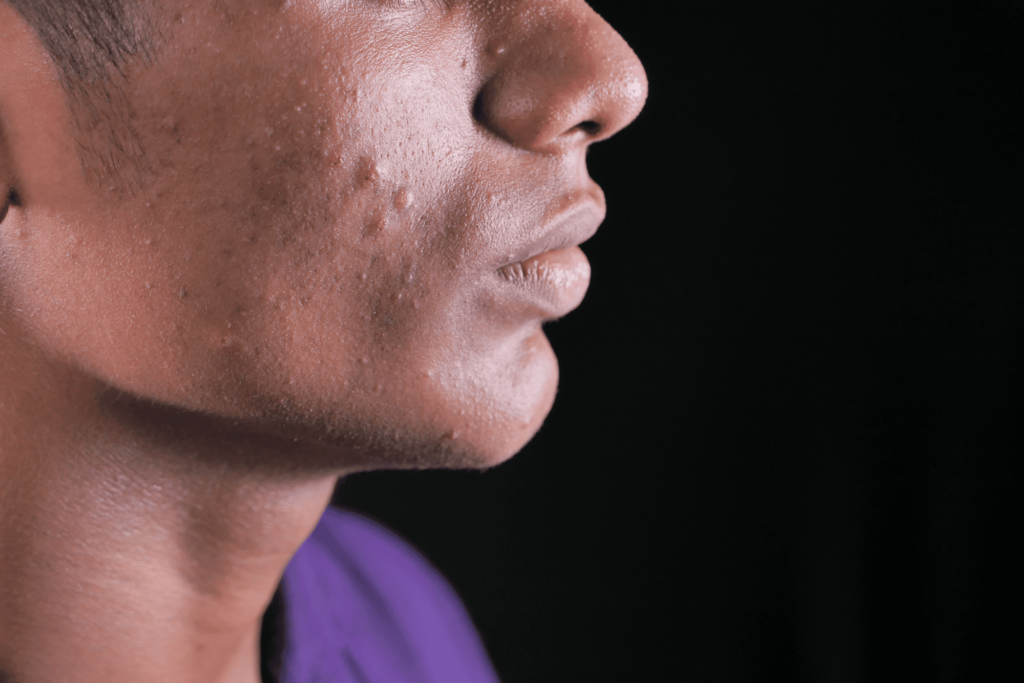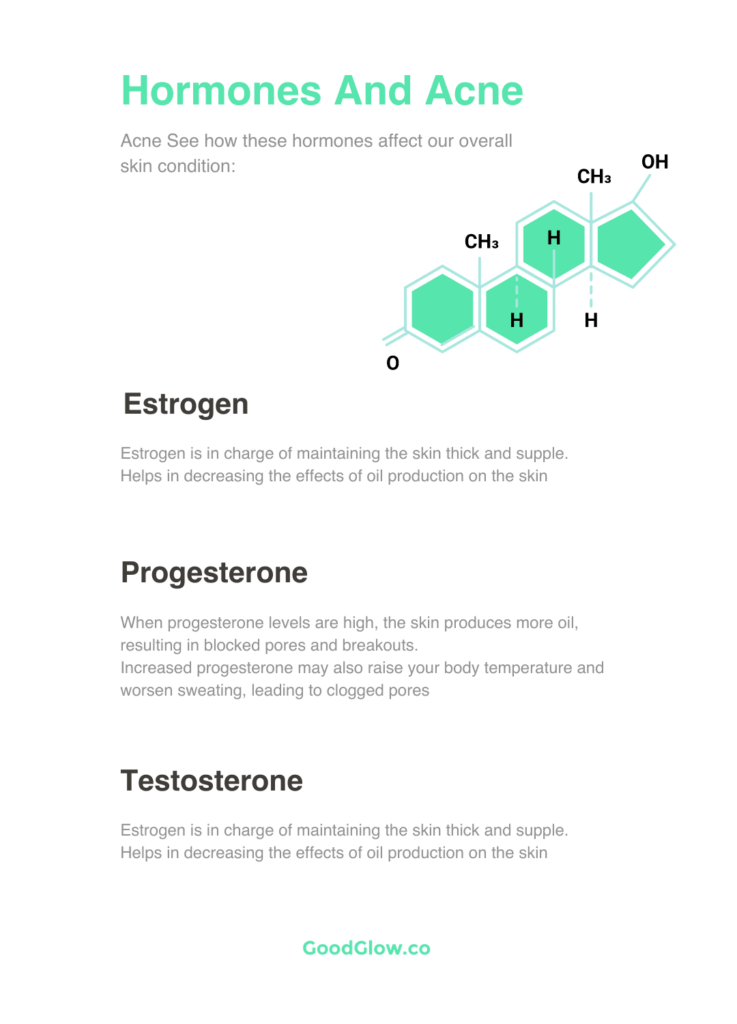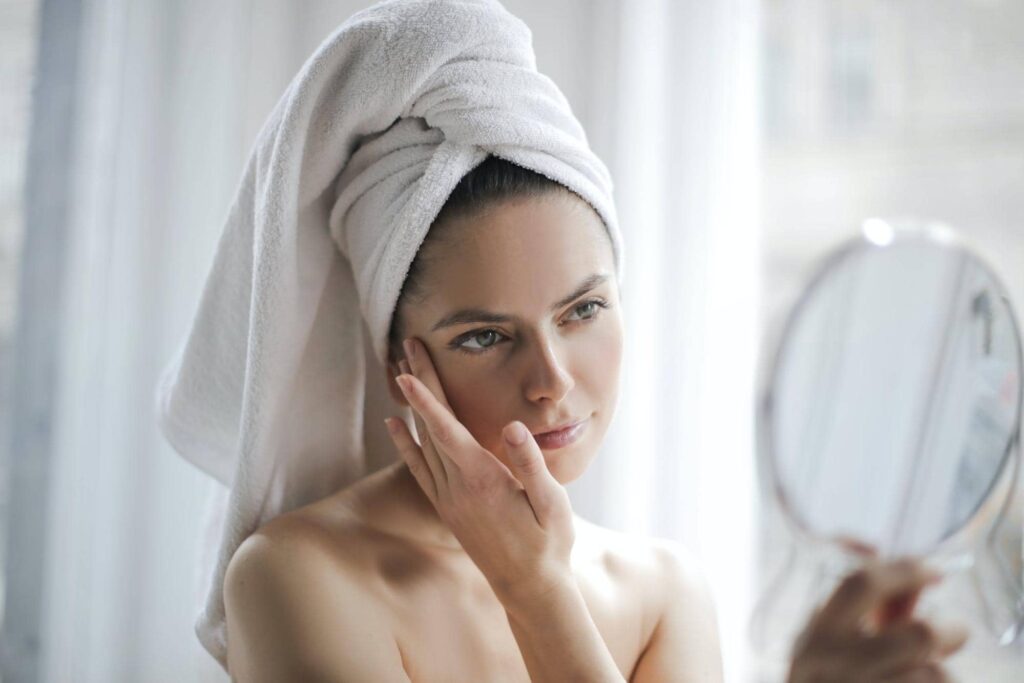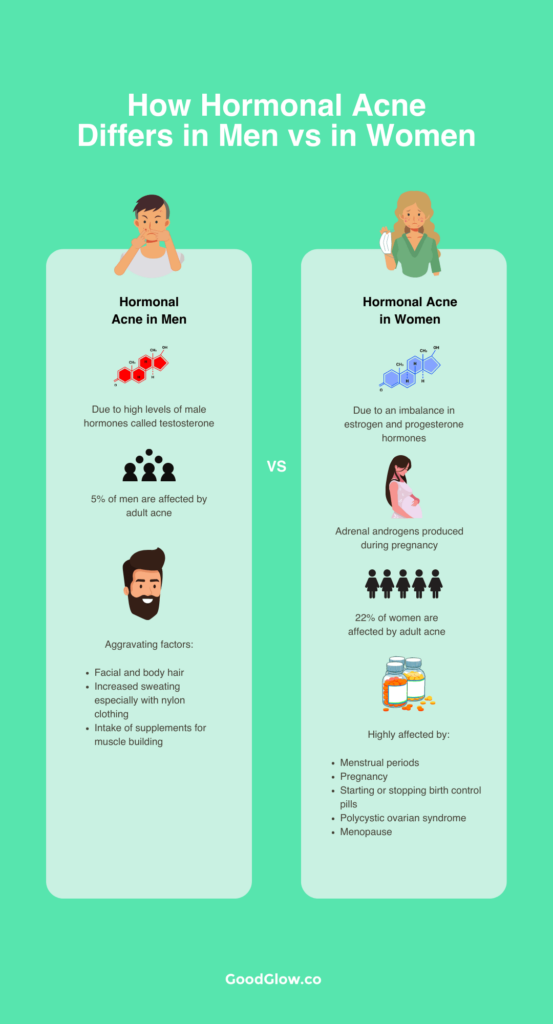Discover how hormonal acne differs in men and women and learn how to treat and prevent it!
Who said acne is just for teenagers? Acne is the eighth most common skin disorder worldwide. Though common in teenage and early adult years, the condition can persist throughout your life.
In fact, 85% of people from 12 to 24 years old have acne. Fluctuations in hormone levels are the usual suspects, especially in women. But men are no exception to this problem.
What is Hormonal Acne?

Photo by Towfiqu Barbhuiya
Hormones that naturally fluctuate might be causing hormonal acne, also known as adult acne. Inflamed and clogged pores are responsible for the blemishes far after puberty.
Sometimes filled with pus, you may find elevated, red, swollen, and painful cysts on the skin of those with this disorder.
The hormones detailed below play essential roles in this skin condition.
Estrogen
Estrogen, often known as the female hormone, is produced in the ovaries and regulates a woman’s reproductive system.
Estrogen slows sebum production, which helps reduce breakouts. The skin will appear moisturized, supple, and radiant whenever estrogen levels are higher.
Progesterone
Progesterone is another female hormone released in the ovaries. It thickens the uterine wall in preparation for a future pregnancy.
Likewise, this hormone has an effect on the skin. When progesterone levels are high, the skin produces more oily substances. Overproduction of oil mixed with dead skin cells can result in clogged pores.
Testosterone
Lastly, testosterone, present in both male and female bodies, is the most important factor.
Women have testosterone produced by their adrenal glands. It is at peak level during ovulation, which coincides with when acne develops.

Acne in Men

Photo by Deepak Maurya
Hormonal acne may affect both men and women from adolescence through maturity. Adult acne typically affects more women, but men suffer for an extended time.
Men may not have a menstrual cycle, but some activities affect their level of testosterone. Increased testosterone levels make the experience with acne worse.
Stress, exercise, diet and lifestyle, sexual activity, age, and genetic profile impact testosterone levels and hormone surges in general.
What Causes Acne in Men?

Photo by Cottonbro Studio
Hormonal Imbalances
Hormone levels are typically the major cause of acne in males. Males have excess sebum secretion since their sebaceous glands, a skin gland near the hair follicles, are more active.
Higher sebum production is likely due to elevated testosterone levels, which can contribute to acne development.
Body and Facial Hair
Another possible cause of acne in men is their coarse body and facial hair. While beards may look cool, they could trap oil and serve as a breeding ground for bacteria irritating the skin. You might want to skip No-Shave November!
Remember, while shaving itself does not cause acne, be careful not to use dull blades or unhygienic tools. This will help avoid beard acne. You may also choose to shave before showering, because your skin is warm, oil-free, and free from grime that might get lodged deeper in the skin.
Lastly, try to avoid touching your face unnecessarily.
Sweating
Men experience acne on the chest, back, upper arms, shoulders, face, and neck.
Increased sweating may promote skin irritation and the appearance of acne. You may notice this in many men during the warmer months and after exercise, especially with nylon clothing.
Supplements
Using supplements to increase muscle growth may also affect the skin.
Certain supplements, such as vitamin B6, B12, iodine, whey protein, and branched-chain amino acids, could cause or worsen hormonal fluctuations.
Diet and Lifestyle
Hormones are an important influence on the general health of our skin. Our diet significantly affects hormone levels. Milk and sugary diets, for example, might raise insulin levels. As a result, your skin may develop a dark velvety patch on areas such as the back of your neck, underarms, and groins. You may also experience acne flare-ups.
It’s important to be in control of your diet to get that healthy-looking skin. This highly informative eBook may help you achieve that glow.
Genetics
Researchers discovered that genetics had a factor in adult acne. Adult breakouts were shown to be more common in people who have a first-degree relative, such as a parent or sibling, with the same condition.
Hormonal Acne in Women: Everything You Need to Know

Photo by Andrea Piacquadio
Acne is often seen in around 50% of women between the ages of 20 and 29. Acne can persist in 25% of women between the ages of 40 and 49. So, why are women more prone to hormonal acne than men?
Due to menstrual cycles, use of birth control pills, pregnancy, and menopause, women endure higher hormone swings than males.
Menstrual acne, or pimples that appear during menstruation, is quite frequent. According to research, 63% of acne-prone women have these premenstrual flares. They’d show up seven to ten days before the start of a woman’s menstruation and disappear as soon as the bleeding begins.
Even in women who do not menstruate, such as pregnant women, having blackheads and whiteheads may still be expected. An increase in androgen hormones in pregnancy is a contributing factor that causes the skin’s glands to increase in size. This results in new acne formation.
Finally, menopause strikes many women in their 40s and 50s. This creates a natural decrease in their reproductive hormones.
Some women get acne during menopause which is most likely related to a decrease in estrogen or changes in testosterone levels.

How Do You Know if Your Acne is Hormonal?

Photo by Cottonbro Studio
Here are a few indicators of hormonal acne, according to dermatologists:
You are No Longer a Teenager
It can be quite frustrating to still get zits when you’re way past your teenage years. Come on, you are ready for adulting, yet your pimples won’t let you move on! If you are past age 25 but still suffer from stubborn acne, it might be due to hormones.
Your Breakouts Usually Appear Around your Jawline
If your breakouts are around your chin and jawline, there’s a high chance that you’re looking at a hormonal type of acne.
Your Stress Levels are High
Cortisol, the stress hormone, stimulates oil production in your sebaceous glands, resulting in blocked pores and acne outbreaks. Chronic stress causes these hormones to be constantly elevated, harming your skin’s health.
Your Breakouts Happen Around the Same Time
Hormonal acne typically occurs cyclically, similar to women’s menstrual periods. Consistently they happen in the same location each month. This pimple appears because of a specific pore that has been enlarged.
Hormonal Acne vs. Bacterial Acne

Photo by Cottonbro Studio
It can be tricky to distinguish if you have hormonal or bacterial acne. After all, zits can look alike!
Hormonal acne is caused by hormonal imbalances, while the latter is caused by, of course, bacteria. In most cases, an outbreak’s location is one of its unmistakable indicators.
Hormonal acne usually appears around your chin and jawline. In contrast, bacterial acne can develop almost anywhere on the face with varying sizes.
Bacterial acne can manifest as whiteheads, blackheads, or even pus-filled pimples. In contrast, hormonal acne is usually deep, with painful bumps or cysts.
How to Treat and Prevent Hormonal Acne

Photo by Anna Shvets
Hormonal acne can be frustrating and overwhelming, but it’s common and normal. So common, in fact, that many ways are being discovered to deal with it.
Oral Contraceptives
For decades, dermatologists have used birth control tablets to treat acne in women. It is usually used when other acne treatments have failed, such as topical creams and oral antibiotics.
Anti-Androgen Drugs
Both men and women have androgen, though males produce more of them. Anti-androgen medications work by lowering this hormone only in females.
Too much androgen, on the other hand, can trigger acne by increasing oil production.
Retinoids
You may be able to use topical retinoids if your hormonal acne is minimal. Many retinoid creams, gels, and lotions are accessible without a prescription.
If you start using a topical retinoid, you should use sunscreen daily. Retinoids might increase your chances of becoming sunburned.
Azelaic acid cream, used locally, also can help prevent pore clogging and inflammation.
Tea Tree Oil
According to one study, topical tea tree oil soothed symptoms in patients with mild to severe acne. Tea tree oil reduces inflammation, which can lead to acne.
Tea tree oil may be found in various skincare products, including cleansers and toners. Its essential oil can also be used as a spot treatment.
Good Diet
Antioxidant-rich plant meals may help decrease inflammation and produce brighter skin. You may need to find ways to reduce your sugar, dairy, and refined carbohydrate intake. These kinds of food could aggravate and trigger inflammatory acne.
If you want to start a healthier diet and lifestyle, this highly informative eBook can help you.
Acne treatment differs from person to person, but patience is always the key. In general, it might take up to four to six weeks after starting therapy to observe improvements in your skin.
When Should You See Your Doctor?

Photo by Shiny Diamond
Consult a doctor if your acne is severe, recurrent, itchy, or painful. Your acne can be an underlying symptom of something more serious.
It is also advisable to see a dermatologist for the best treatment. Now that you know about hormonal acne, be careful in using any DIY or over-the-counter products to reduce acne breakouts.
A doctor can significantly assess your skin condition, like acne, if it’s worsening. Contact a professional immediately if you detect any adverse medication reactions at home.
Conclusion
Hormonal acne, the eighth most prevalent skin disease worldwide, affects both genders. This condition can be frustrating and painful, and sometimes embarrassing!
But do not lose hope! Hormonal acne can be treated and prevented. Different methods can be used to manage this disease. Having adult acne doesn’t mean that you have to live in doom!
FAQs
A: Diet plays an integral role in hormonal fluctuation. Having a good and healthy diet could lessen hormonal imbalances that may lead to breakouts.
A: It depends on your skin condition and skin management. On average, it may take four to six weeks after beginning treatment to see visible changes in your skin.
A: Various treatments for treating hormonal acne are available. This can range from topical and oral medications to diet and lifestyle changes.
A: Hormonal acne primarily develops around the chin and jawline, but bacterial acne can present elsewhere on the face. Bacterial acne can cause whiteheads, blackheads, and pustules, whereas, in hormonal acne, cysts are common.
Sources
Rocha, Marco A., and Ediléia Bagatin. “Adult-onset Acne: Prevalence, Impact, and Management Challenges.” PubMed Central (PMC), 1 Feb. 2018, www.ncbi.nlm.nih.gov/pmc/articles/PMC5798558.
“Skin Conditions by the Numbers.” Skin Conditions by the Numbers, www.aad.org/media/stats-numbers. Accessed 19 Nov. 2022.
Tanghetti, Emil A., et al. “Understanding the Burden of Adult Female Acne.” PubMed Central (PMC), www.ncbi.nlm.nih.gov/pmc/articles/PMC3935648. Accessed 19 Nov. 2022.
“Adult Acne.” Adult Acne, www.aad.org/public/diseases/acne/really-acne/adult-acne. Accessed 19 Nov. 2022.
“Estrogen’s Effects on the Female Body.” Estrogen’s Effects on the Female Body | Johns Hopkins Medicine, 1 Nov. 2022, www.hopkinsmedicine.org/health/conditions-and-diseases/estrogens-effects-on-the-female-body.
“Hormones and the Endocrine System.” Hormones and the Endocrine System | Johns Hopkins Medicine, 19 Nov. 2019, www.hopkinsmedicine.org/health/conditions-and-diseases/hormones-and-the-endocrine-system.
Iftikhar, Usma, and Nakhshab Choudhry. “Serum Levels of Androgens in Acne and Their Role in Acne Severity.” PubMed Central (PMC), www.ncbi.nlm.nih.gov/pmc/articles/PMC6408631. Accessed 19 Nov. 2022.
“Adult Acne.” Adult Acne, www.aad.org/public/diseases/acne/really-acne/adult-acne. Accessed 19 Nov. 2022.
Wood, Sam. “Does Stress Cause Acne? (Hint: Less Stress Is Better) – GoodGlow.” GoodGlow, 22 June 2021, goodglow.co/stress-acne.
Wood, Sam. “Hormonal Acne Diet: Foods to Eat and Avoid – GoodGlow.” GoodGlow, 7 Feb. 2021, goodglow.co/ultimate-guide-to-hormonal-acne-symptoms-root-causes-treatment.
“The Influence of Genetics and Environmental Factors in the Pathogenesis of Acne: A Twin Study of Acne in Women.” The Influence of Genetics and Environmental Factors in the Pathogenesis of Acne: A Twin Study of Acne in Women – ScienceDirect, 8 Dec. 2015, www.sciencedirect.com/science/article/pii/S0022202X15301019.
Elsaie, Mohamed L. “Hormonal Treatment of Acne Vulgaris: An Update.” PubMed Central (PMC), 2 Sept. 2016, www.ncbi.nlm.nih.gov/pmc/articles/PMC5015761.
“Acne and Hirsuties in Teenagers – PubMed.” PubMed, 1 Feb. 2003, pubmed.ncbi.nlm.nih.gov/12758231.
Wood, Sam. “Do Beards Cause Acne? Treatments and Preventions | GoodGlow.” GoodGlow, 27 Nov. 2021, goodglow.co/beard-acne.
Wood, Sam. “Does Sweat Cause Acne? The Workout Myth Solved – GoodGlow.” GoodGlow, 28 Apr. 2021, goodglow.co/sweat-acne.
Carvalho Pontes, Thaís de, et al. “Incidence of Acne Vulgaris in Young Adult Users of Protein-caloriesupplements in the City of João Pessoa – PB.” PubMed Central (PMC), www.ncbi.nlm.nih.gov/pmc/articles/PMC3900340. Accessed 19 Nov. 2022.
Baldwin, Hilary, and Jerry Tan. “Effects of Diet on Acne and Its Response to Treatment.” PubMed Central (PMC), 3 Aug. 2020, www.ncbi.nlm.nih.gov/pmc/articles/PMC7847434.
Sing Heng, Anna Hwee, et al. “Gene Variants Associated With Acne Vulgaris Presentation and Severity: A Systematic Review and Meta-analysis – BMC Medical Genomics.” BioMed Central, 13 Apr. 2021, bmcmedgenomics.biomedcentral.com/articles/10.1186/s12920-021-00953-8.
Wilson, Ashley. “15 Proven Strategies to Naturally Treat Pregnancy Acne | GoodGlow.” GoodGlow, 7 Dec. 2021, goodglow.co/naturally-treat-acne-during-pregnancy.
Wilson, Ashley. “6 Menopausal Acne Treatments: Prevention Tips and Resources | GoodGlow.” GoodGlow, 8 Dec. 2021, goodglow.co/menopause-acne.
Sydel, Simone. “How to Prevent Acne Breakouts During Ovulation – GoodGlow.” GoodGlow, 6 Oct. 2022, goodglow.co/what-causes-acne-during-ovulation.
Khunger, Niti, and Krati Mehrotra. “Menopausal Acne – Challenges and Solutions.” PubMed Central (PMC), 29 Oct. 2019, www.ncbi.nlm.nih.gov/pmc/articles/PMC6825478.
Press, Dove, et al. “Acne Vulgaris: A Cross-sectional Study | CCID.” Acne Vulgaris: A Cross-sectional Study | CCID, www.dovepress.com/the-relevant-of-sex-hormone-levels-and-acne-grades-in-patients-with-ac-peer-reviewed-fulltext-article-CCID. Accessed 19 Nov. 2022.
Lee, Young Bok, et al. “Potential Role of the Microbiome in Acne: A Comprehensive Review.” PubMed Central (PMC), 7 July 2019, www.ncbi.nlm.nih.gov/pmc/articles/PMC6678709.
Sydel, Simone. “https://www.ncbi.nlm.nih.gov/pmc/articles/PMC6360964/.” GoodGlow, 10 Mar. 2022, goodglow.co/fungal-vs-bacterial-acne.
“Which Birth Control Pills Can Help Reduce Acne? – InformedHealth.org – NCBI Bookshelf.” Which Birth Control Pills Can Help Reduce Acne? – InformedHealth.org – NCBI Bookshelf, 26 Sept. 2019, www.ncbi.nlm.nih.gov/books/NBK279209/#:~:text=Hardly%20any%20of%20the%20studies,the%20participants’%20skin%20got%20better.
Wood, Sam. “Yes, Tretinoin Can Help Relieve Hormonal Acne and Scarring – GoodGlow.” GoodGlow, 20 Feb. 2022, goodglow.co/does-tretinoin-help-hormonal-acne.
“Tea Tree Oil Gel for Mild to Moderate Acne; a 12 Week Uncontrolled, Open-label Phase II Pilot Study – PubMed.” PubMed, 1 Aug. 2017, pubmed.ncbi.nlm.nih.gov/27000386.
Wood, Sam. “3 Ways to Use Tea Tree Oil to Treat Acne Breakouts – GoodGlow.” GoodGlow, 13 Oct. 2022, goodglow.co/tea-tree-oil-treat-acne-breakouts.
Wood, Sam. “Hormonal Acne Diet: Foods to Eat and Avoid – GoodGlow.” GoodGlow, 7 Feb. 2021, goodglow.co/ultimate-guide-to-hormonal-acne-symptoms-root-causes-treatment.
“What Can Clear Severe Acne?” What Can Clear Severe Acne?, www.aad.org/public/diseases/acne/derm-treat/severe-acne. Accessed 19 Nov. 2022.

